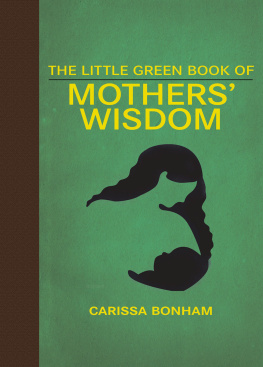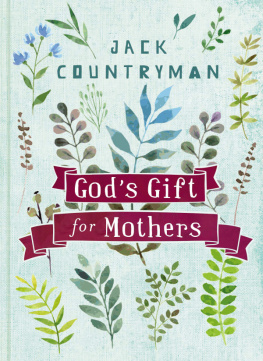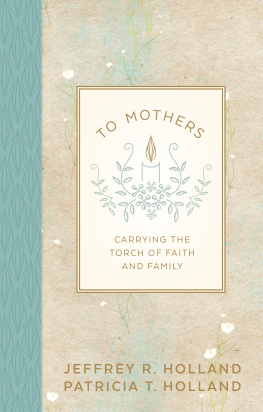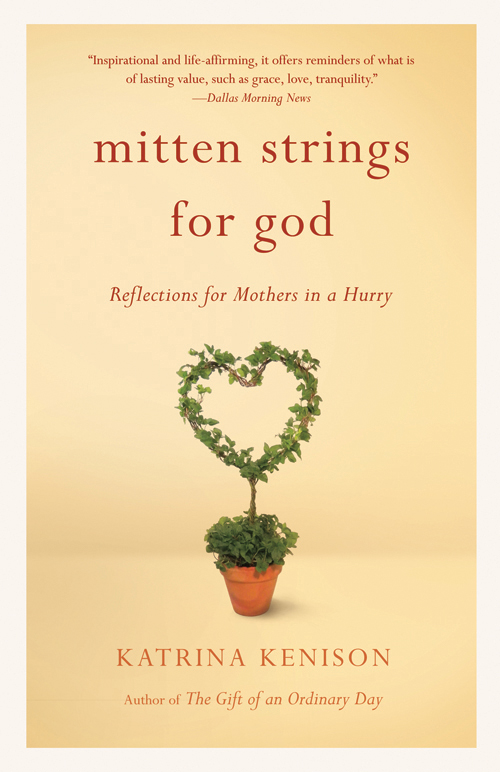Copyright 2000 by Katrina Kenison
Afterword Copyright 2002 by Katrina Kenison
Excerpt from The Gift of an Ordinary Day Copyright 2009 by Katrina Kenison
All rights reserved. Except as permitted under the U.S. Copyright Act of 1976, no part of this publication may be reproduced, distributed, or transmitted in any form or by any means, or stored in a database or retrieval system, without the prior written permission of the publisher.
Parts of this book have appeared, in somewhat different form, in the following publications:
Play as Mud-pies and Make Believe in The Ladies Home Journal, June 1999
Sabbath as The Secret of Stressless Sundays in Redbook, September 1999
Stretching as The Secret Ways Kids Change Us in Redbook, November 1999
Grateful acknowledgment is given to Debra Woods for permission to reprint her letter in Choices.
For the Children is by Gary Synder, from Turtle Island. Copyright 1974 by Gary Snyder. Reprinted by permission of New Directions Publishing Corp.
Grand Central Publishing
Hachette Book Group
237 Park Avenue
New York, NY 10017
Visit our website at www.HachetteBookGroup.com
www.twitter.com/grandcentralpub
First eBook Edition: September 2010
Grand Central Publishing is a division of Hachette Book Group, Inc.
The Grand Central Publishing name and logo is a trademark of Hachette Book Group, Inc
ISBN: 978-0-446-93092-5
Praise for
M ITTEN S TRINGS FOR G OD
A mothers guidebook for the road less traveled Like Anne Morrow Lindberghs classic Gift from the Sea, Ms. Kenisons musings on family life, motherhood, and her own search for balance belong by the bedside, where it can be savored again and again.
Christian Science Monitor
Harkens the reader back to the simplest and most potent things In her quest to bring beauty and meaning to her childrens afternoons, Katrina Kenison, in elegant and heartfelt prose, leads us all into the realm of the essential.
Beth Kephart, National Book Award finalist and author of The Heart Is Not a Size
[Katrina Kenison] provides in this lovely volume a kind of literary how-to for restoring quality and stillness to lives that are too often spent on the run.
San Antonio Express-News
Katrina Kenison has wrought something almost miraculous in this crazy age of ambitious parentinga lovely, beautifully crafted memoir and meditation on savoring the small, spiritual moments of our daily family lives.
James Dodson, author of Beautiful Madness
In this quietly beautiful little book, Kenison offers us a rare chance to slow down, enjoy one another and our children, and live peaceful lives in an overscheduled world.
Reeve Lindbergh, author of Forward from Here: Leaving Middle Ageand Other Unexpected Adventures
In MITTEN STRINGS FOR GOD, I found wisdom to last a lifetime. Katrina Kenison writes from the heart, with a naturalists eye for beauty and a poets fearlessness.
Roberta Israeloff, author of Kindling the Flame
[Katrina Kenisons] writing, which is as simple and true as that of Anne Morrow Lindberghs, bears rereading and contemplation.
Dallas Morning News
Warm and caring her thoughtful reflections on family life, the frenetic pace of modern life, and the need to slow down to spend quality time with family.
Publishers Weekly
A moving, heartwarming celebration of those achingly lovely moments between parent and child must reading for every parent and grandparent.
Judith S. Wallerstein, PhD, author of The Unexpected Legacy of Divorce and What About the Kids?
FOR HENRY AND JACK, OF COURSE

People travel to wonder at the height of mountains, at the huge waves of the sea, at the long courses of rivers, at the vast compass of the ocean, at the circular motion of the stars; and they pass by themselves without wondering.
ST. AUGUSTINE

Each year since our two sons, now nine and six, were born, my husband and I have stayed in touch with family and friends at Christmastime with one of those much maligned holiday letters. We came to regard it as a necessary stopgapthe alternative being complete silenceduring these hectic years of work and parenthood.
Two Christmases ago, with no major life events to report, I wrote a different kind of letter, describing my own desire to slow life down in the midst of the holiday season and to tune in to a gentler rhythm. I found that in those moments when I did pause long enough to fully experience my own life, my children seemed happier and more peaceful as well. Suddenly, I realized, we truly did have something to celebrate: the joy of real togetherness. These were simple reflections, to be sure, yet, to my surprise, the letter quickly took on a life of its own. Friends and relatives made copies to include in their Christmas cards, and, as a result, people I scarcely knew wrote me letters in return; distant friends, long out of touch, called and wrote, sharing their stories; a writer friend asked if she could reprint the letter in a New Years Day column; another sent me a subscription to a Quaker newsletter; and an old high school friend (who had received a copy of the letter from his mother, who had received a copy from mine) wrote to ask if he might be added to my Christmas card list for the next year. Apparently I had struck a chord.
Being a mother today seems to require that we move too fast most of the time. Much as we may crave quiet interludes with our children, family mealtimes, and meaningful rituals, many of us have resigned ourselves to life without them. There may be days when we barely manage to bring the members of our families together in the same room at the same timelet alone share our innermost thoughts, a joke, or a moment of quiet intimacy.
Yet we also know that our relationshipswith ourselves and with each otherneed time if they are to flourish. Parents and children alike need time for solitude, time to stretch and think and wonder, time to become acquainted with ourselves and with the world around us. And parents and children need sacred time together, time that is carved out of our busy lives, protected and honored but not scheduled. Time, instead, for just being.
Most of us came of age in a world that was quite different from the one our children now inhabit. As a child I was fed and clothed and loved and cared forand otherwise left to my own devices a good deal of the time. Even a generation ago, childhood could still be experienced as an accumulation of idle hours, hours in which we were allowed to discover the world for ourselves, piecemeal, and to awaken slowly to its beauty and complexity. In the process, we awakened to ourselves.
We cant reclaim those spacious hours, any more than we can turn back the hands of time and return to that more innocent age. But the lessons taught by the solitude and imposed leisure of childhood are still imprinted on our souls. As children we learned the pleasure of our own company, how to be happy where we were with what we had, how to fill an empty afternoon. But I wonder: Do we give our own children time enough to absorb the subtle teachings of such tranquil moments? Are we granting them the time they need to develop an










